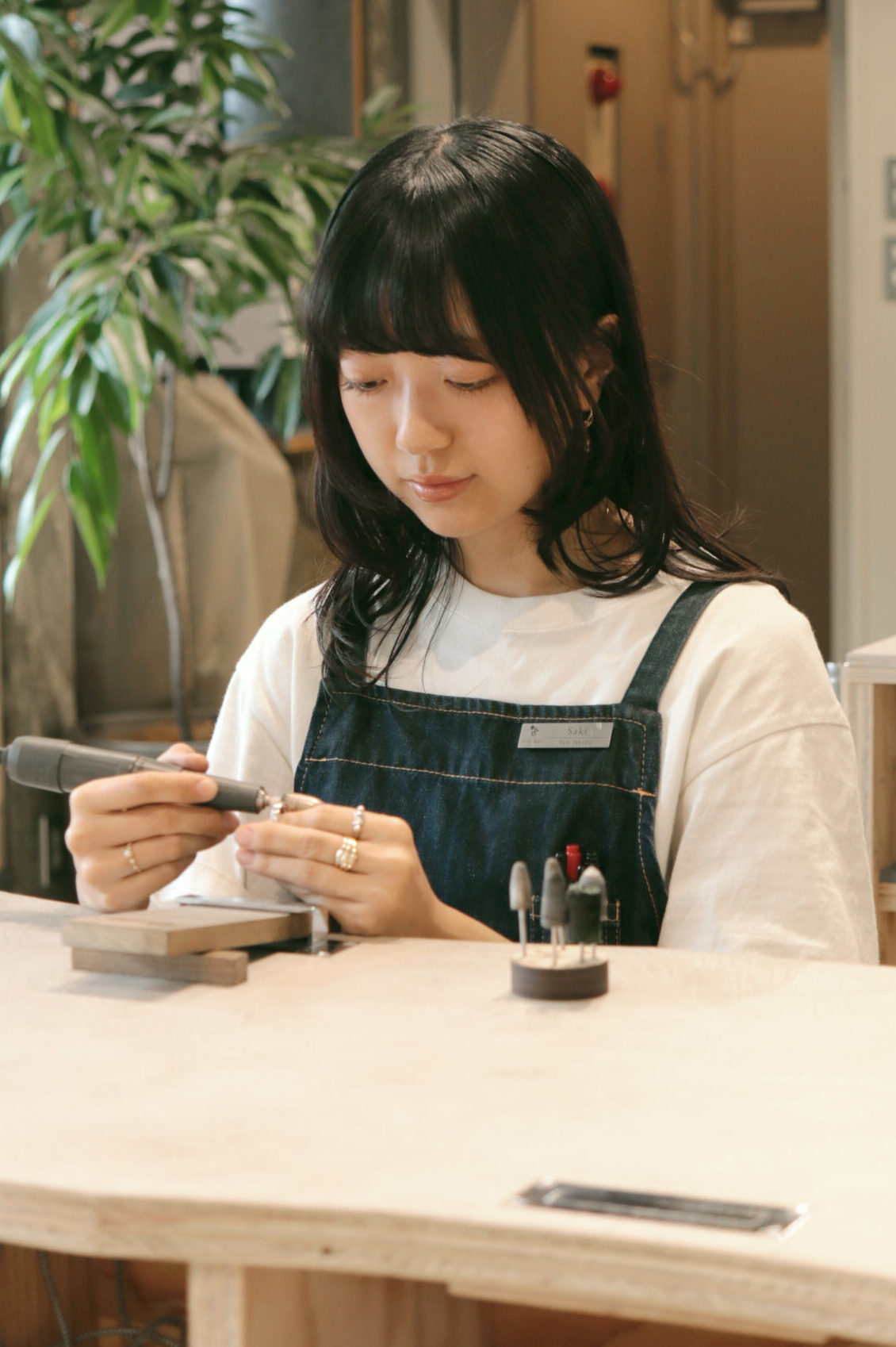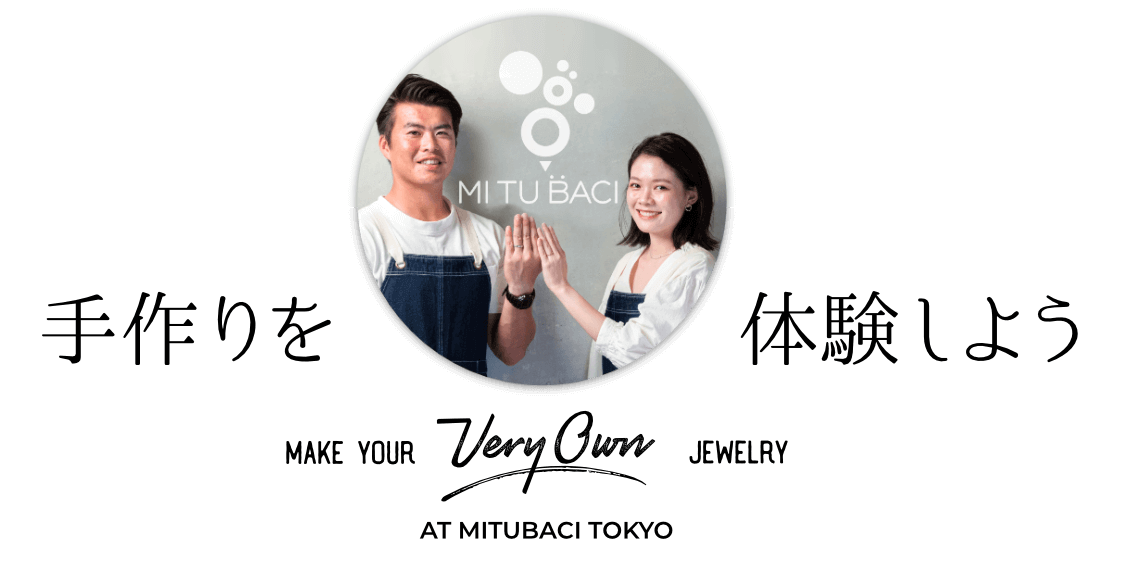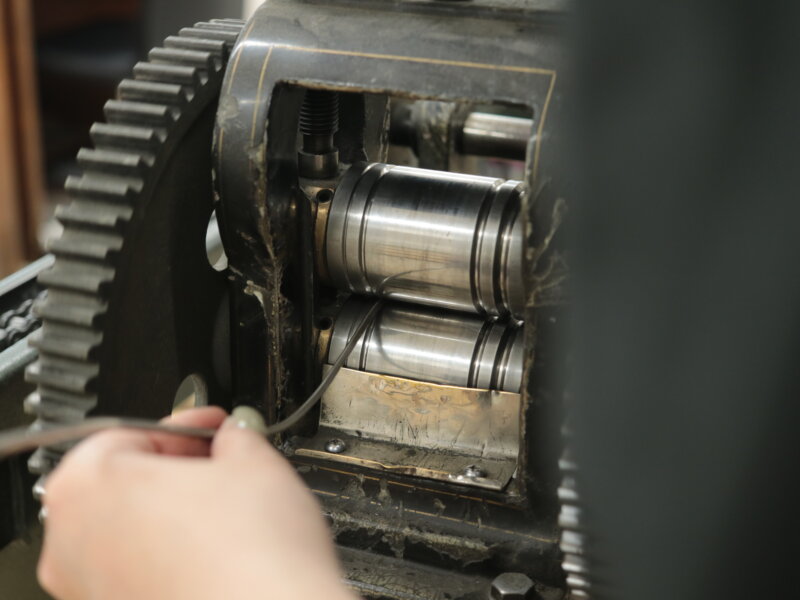Hello, I am Takada, a craftsman. It has been almost half a year since I started working at MITUBACI in April this year. My work is gradually becoming more familiar in my hands, and the number of technical things I can do is increasing. But at the same time, I find myself stopping to ask myself, "Was this the right thing to do?" But at the same time, I feel that there are more and more times when I have to stop and wonder, "Is this the right thing to do? The six-month milestone is a time when I feel growth, but at the same time, it may also be a time when I keenly feel the parts of myself that are not quite there yet.
At the MITUBACI workshop, sometimes the craftsmen do the final finishing touches on the rings made by the customers. If I find a small scratch or blemish there, I polish the ring again. Whenever I am told this, I feel a little relieved. I wonder if I am a professional. I wonder if I am a "professional. From the customer's point of view, I am sure that I am. But to be honest, I have never had the confidence in myself to be able to say, "I am a professional. To be more precise, I think I felt somewhat shy about being called a "professional. My skills and experience were still in their infancy. I felt a little uncomfortable being called a "professional" because I felt that way. As I thought about this, I began to wonder, "What does it mean to be a professional? Having skill? Speed of work? Being paid for it? All of these are probably true, but I felt that there was more to it than that.
Looking at the senior craftsmen I work with, I can gradually see the outline of the answer to such a question. There is no waste in the hands of veteran senior craftsmen. There is no hesitation in the order of finishing touches, the tools they use, or the way they apply force. But it is not just that their hands are fast or that they are used to doing things. Each movement is based on a firm decision. I think this is the result of his continuous consideration of "how to make the most beautiful finish. I feel that the time they have spent thinking about it is engraved in the actions they seem to perform without conscious thought.
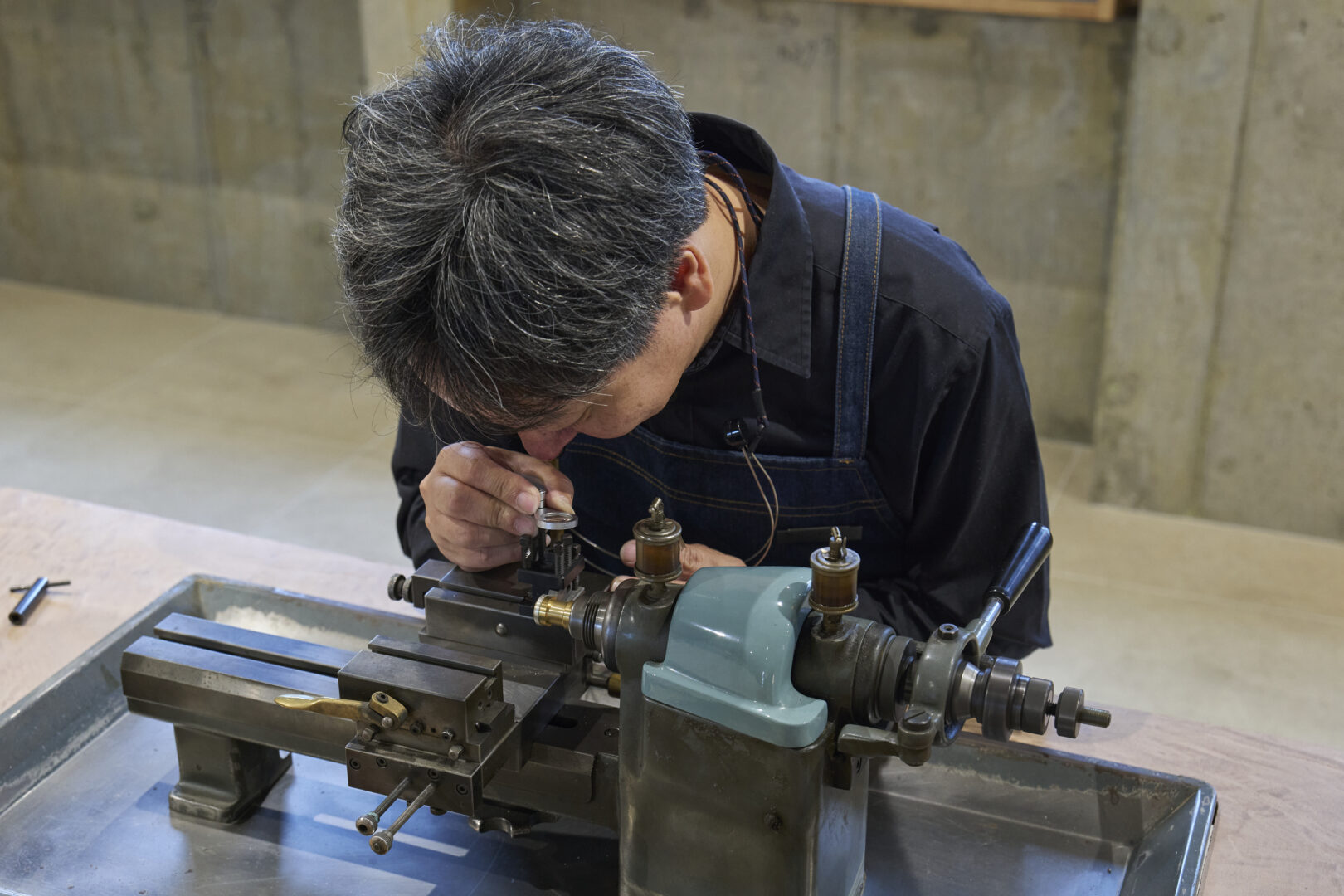
Photo by Akira Nakamura
One of my seniors once told me this.
It's important to meet the customer's needs, but it's the craftsman's job to decide how the final product will look. So you can also trust your own sensibility in judging it." He said, "It is important to respond to the customer's request. When I heard these words, it became a little clearer to me. I was torn between the customer's requests and my own sense of beauty. While wavering between the two, he ultimately takes responsibility for his decision and says, "Let's do it this way. Perhaps this attitude is what it means to be a craftsman and a professional.
I have always felt a bit distant from "mastering technology". I am more of a thinker, the type of person who only cares about meaning and background. I think I have a bit of a troublesome personality, to the point that even when I am working, I stop and wonder why I am doing this. So I was somewhat afraid of practicing silently and honing my skills. It's hard to put it well, but I had the feeling that as I kept repeating the same thing over and over again, my own way of feeling would also become fixed.
However, this idea gradually changed when I observed the work of the senior workers up close. When I observed them closely, I realized that they were not just doing what they were used to doing, but that they were thinking and judging each action carefully. Each movement is a little different, even though it seems to be repetitive. While assessing the properties of the materials and the condition of the tools, they search for the "best way to achieve the most beautiful finish. I believe that the accumulation of these judgments is what "technique" is all about.
Since then, I think I have come to understand a little more about what it means to improve one's technique. I realized that improving one's technique is not just about practicing with one's hands, but also about developing the ability to turn one's thoughts into reality. For example, when I think in my head, "I want to make the texture a little more like this," I become able to give it proper shape. It is like when you want to put a vague idea into words, your vocabulary for expressing what you are feeling will increase. As I gradually become able to do things that I could not do before, the scope of what I can do next expands. Recently, such moments have been increasing, and I have come to think that it is simply "fun to improve.
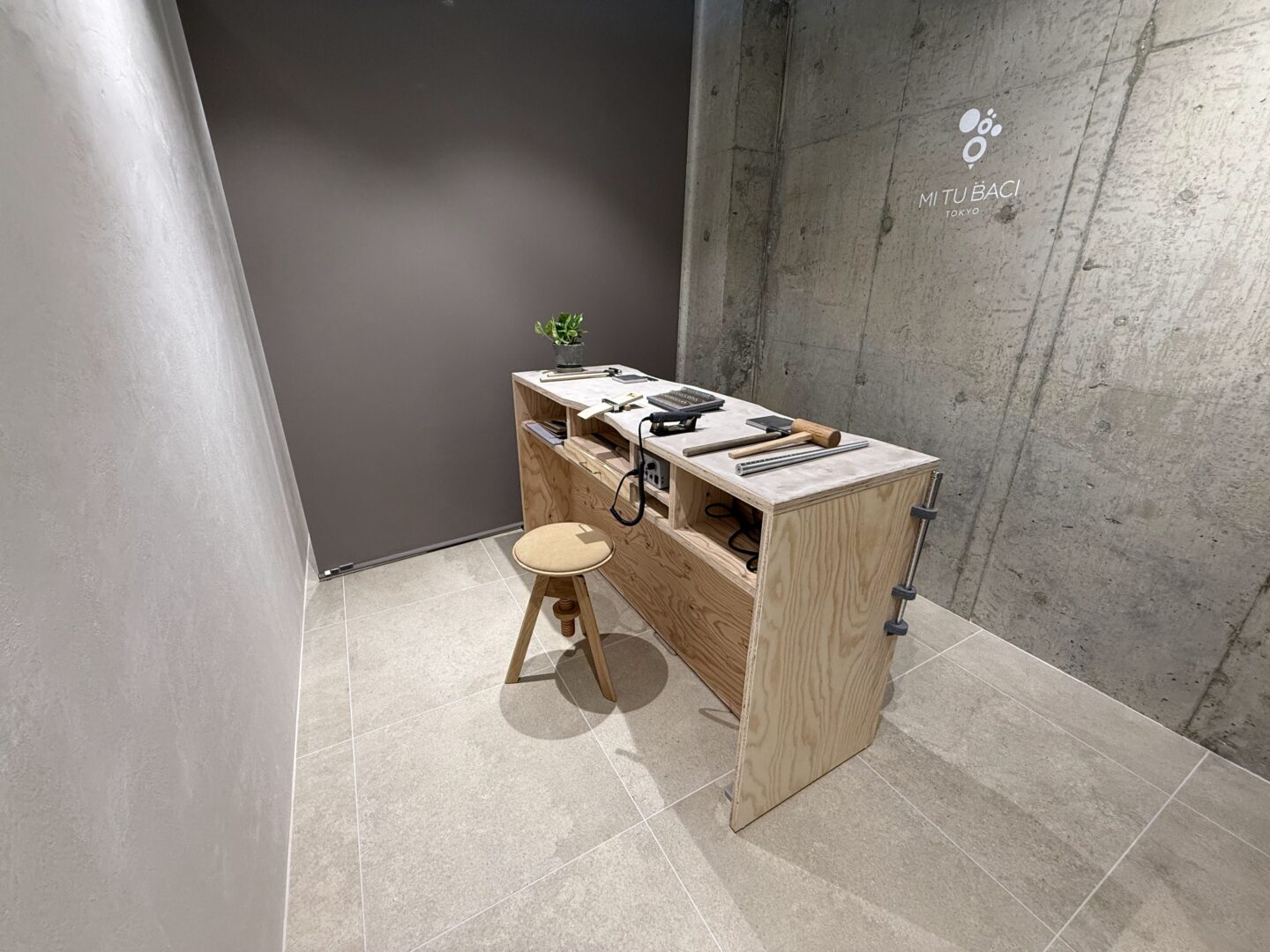
This is a bit off topic, but I like a musician named Satoko Shibata. The lyrics she writes are always very personal and seem to be born out of her imagination. Her early songs have a somewhat muddy, rustic, and lispy feel to them, which gives them a unique worldview that is fairy tale-like but a little poisonous, and I was really attracted to that "unrefined" quality.
When I listened to her album "Your favorite Things" released last year, I was very surprised. Her unique worldview has been sublimated into a popular style. After listening to the album, I learned from an article in which she explained all the songs on the album that she consciously constructed the structure and melody of the album. Not only did she leave it to her senses, but she also calculated and practiced "how to make a good song. What I had previously thought of as something born of the senses was actually the result of meticulous thought and consideration - this was a strong shock to me. I was so excited that such a free and unique work was created not only by sensation and chance, but also by technique and composition... Satoko Shibata is too amazing, a true professional.
I sensed a sense of professionalism in her words when she said, "By letting the work leave my hands a little, it becomes something I am not ashamed to have people listen to. Rather than throwing out one's worldview as one's impulses dictate, one offers it up in a form that reaches others. I was reminded once again that this is the expression of a professional.
My favorite artist, Satoko Shibata, has been talking about her music for a bit longer than I would like, but when I listened to her music, I realized that she does not rely solely on chance or sensibility, but takes responsibility for her own decisions, using her experience and skills to shape her work. I feel that this attitude is similar to that of a craftsman. We, too, work on the spot to create jewelry, not only relying on our senses, but also thinking about how to make it more beautiful, and giving it shape while confronting the tools and materials. I was reminded as I thought about her music that it is the accumulation of such experiences that nurtures the qualities of a "professional. (Your Favorite Things" is a very good album, so please listen to it if you like!)

What does it mean to be a professional? Perhaps it is to have perfect technique, to be able to move without hesitation, but more than that, it is to have responsibility and confidence in one's own judgment. To reach a point where you can confidently say, "This is good enough," and to properly nurture that "good enough" within yourself. In the past six months, I have gradually come to approach my work with this awareness. Even if the work looks the same at first glance, I want to meet the customer's needs! I face my work with the mindset of "I want to meet the customer's needs! In the process, I think, feel, and make decisions in my own way every time. I feel that such time enriches my days little by little. I would like to continue to work while looking at my changing self and feeling and thinking about many things.
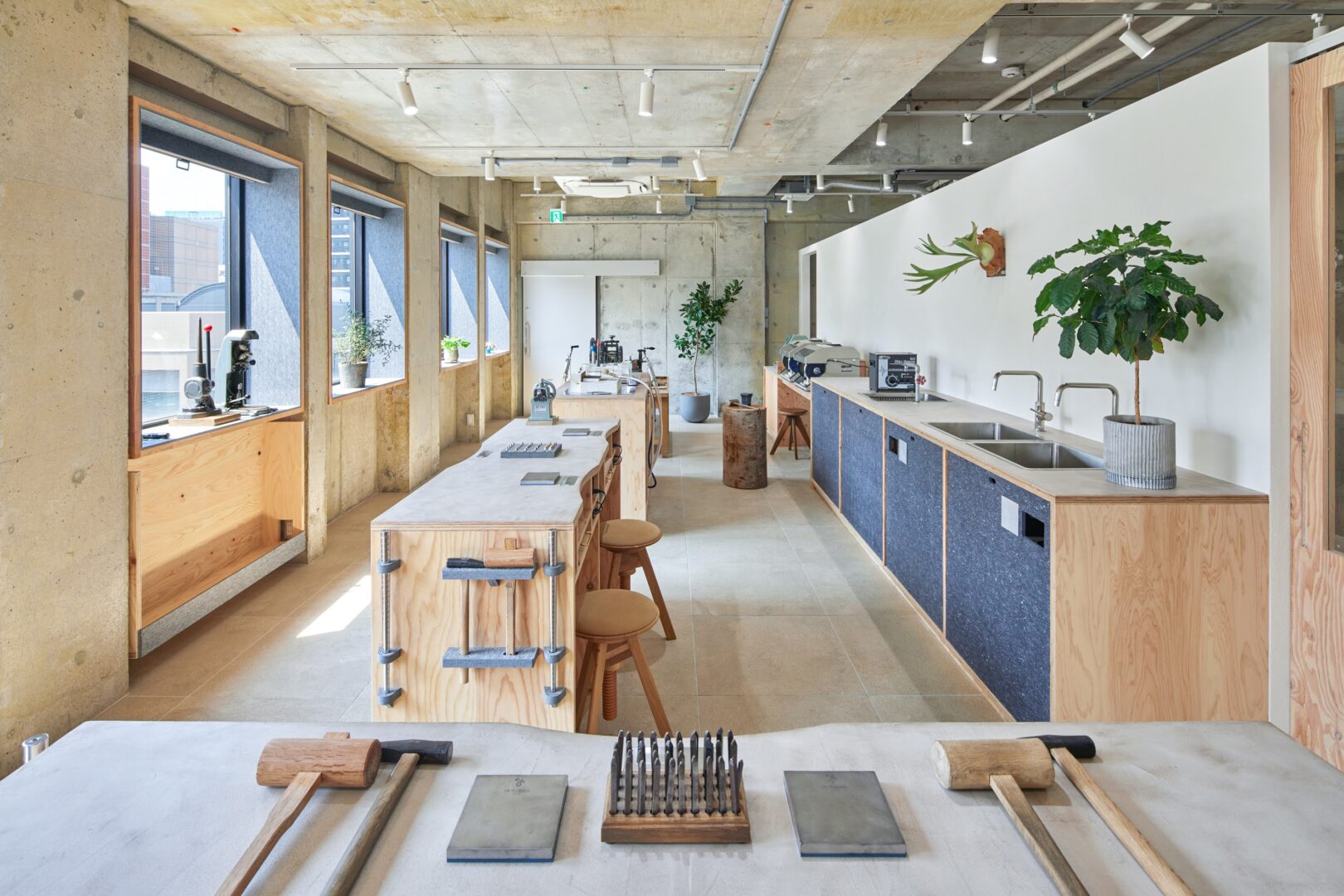
And for MITUBACI I confidently said, "Wow! Professional...!" Please come and visit us. We look forward to seeing you soon!
Thank you for reading this far!
